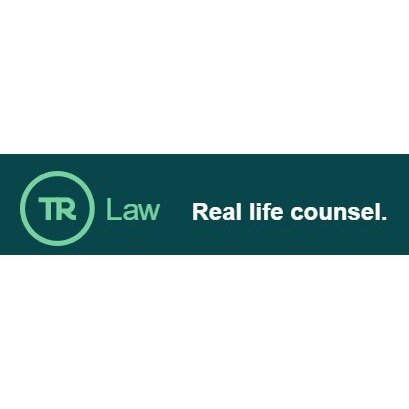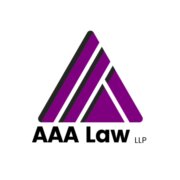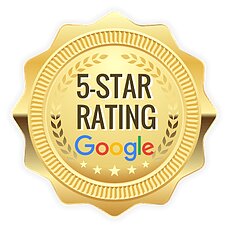Best Medical Malpractice Lawyers in Toronto
Share your needs with us, get contacted by law firms.
Free. Takes 2 min.
List of the best lawyers in Toronto, Canada
About Medical Malpractice Law in Toronto, Canada
Medical Malpractice refers to a situation where a healthcare professional, such as a doctor, nurse, or surgeon, fails to provide the expected standard of care, leading to injury or harm to the patient. In Toronto, Canada, Medical Malpractice falls under the jurisdiction of the civil legal system. It requires a comprehensive understanding of both medical and legal principles.
Why You May Need a Lawyer
There are several situations where seeking legal help for Medical Malpractice can be crucial:
- If you have suffered an injury or harm due to medical treatment or negligence.
- If you believe a medical professional has misdiagnosed, delayed treatment, or made an error leading to your condition worsening.
- If you are facing difficulties in obtaining medical records or information from healthcare providers.
- If you are unsure whether you have a valid Medical Malpractice claim and need assistance in assessing your case.
- If you are negotiating a settlement with the insurance company or healthcare provider.
Local Laws Overview
In Toronto, Canada, the following key aspects of the local laws are particularly relevant to Medical Malpractice:
- The time limit, known as the statute of limitations, for filing a Medical Malpractice lawsuit is generally two years from the date the injury occurred or the date it was discovered.
- It is essential to prove that the healthcare professional's conduct fell below the accepted standard of care and directly caused the injury or harm.
- There are caps on non-economic damages, such as pain and suffering, which vary depending on the severity of the injury.
- Medical Malpractice cases often require expert medical testimony to establish negligence and causation.
Frequently Asked Questions
1. How long do Medical Malpractice claims usually take to resolve?
The length of time for a Medical Malpractice claim to reach a resolution can vary significantly. It depends on factors such as the complexity of the case, the willingness of the parties to negotiate, and the court's caseload. Some cases may settle within a few months, while others can take several years to conclude.
2. How much does it cost to hire a Medical Malpractice lawyer?
Most Medical Malpractice lawyers in Toronto, Canada, work on a contingency fee basis. This means that they charge a percentage of the compensation awarded to you, typically around 30%. If your case is unsuccessful, you will not need to pay legal fees. However, it is essential to discuss the fee structure with your lawyer before proceeding.
3. Can I sue a hospital for Medical Malpractice?
Yes, you can sue a hospital for Medical Malpractice if the negligence or wrongful actions of its employees, such as doctors, nurses, or staff, have caused your injury or harm. Hospitals can be held liable for the actions of their employees under the legal principle known as "vicarious liability."
4. Is there a limit to the compensation I can receive for Medical Malpractice?
Yes, there are limits on non-economic damages, such as pain and suffering, in Medical Malpractice cases in Toronto, Canada. The specific limits depend on the severity of the injury and are adjusted annually. Consult with a lawyer to determine the potential compensation you may receive based on your case.
5. Can I file a Medical Malpractice claim if the treatment did not have the desired outcome?
A unsuccessful or undesired outcome of medical treatment does not automatically constitute Medical Malpractice. To establish a valid claim, it must be proven that the healthcare professional's conduct fell below the accepted standard of care, resulting in injury or harm. Consulting with a Medical Malpractice lawyer can help assess the merits of your case.
Additional Resources
For additional resources, governmental bodies, or organizations related to Medical Malpractice, consider the following:
- College of Physicians and Surgeons of Ontario: They provide information on licensed medical professionals and can assist with filing complaints.
- Law Society of Ontario: The regulatory body for lawyers in Ontario. Their website offers resources to find qualified and experienced Medical Malpractice lawyers.
- The Advocates’ Society: An organization that provides educational programs and resources for legal professionals, including those specializing in Medical Malpractice.
Next Steps
If you require legal assistance in a Medical Malpractice case, it is important to take the following steps:
- Gather all relevant medical records, documents, and evidence pertaining to your case.
- Contact and consult with an experienced Medical Malpractice lawyer who can assess the merits of your case.
- Discuss the fee structure and terms of engagement with your lawyer before proceeding.
- Provide your lawyer with all necessary information and cooperate fully throughout the legal process.
- Follow your lawyer's guidance and advice in pursuing your Medical Malpractice claim.
Lawzana helps you find the best lawyers and law firms in Toronto through a curated and pre-screened list of qualified legal professionals. Our platform offers rankings and detailed profiles of attorneys and law firms, allowing you to compare based on practice areas, including Medical Malpractice, experience, and client feedback.
Each profile includes a description of the firm's areas of practice, client reviews, team members and partners, year of establishment, spoken languages, office locations, contact information, social media presence, and any published articles or resources. Most firms on our platform speak English and are experienced in both local and international legal matters.
Get a quote from top-rated law firms in Toronto, Canada — quickly, securely, and without unnecessary hassle.
Disclaimer:
The information provided on this page is for general informational purposes only and does not constitute legal advice. While we strive to ensure the accuracy and relevance of the content, legal information may change over time, and interpretations of the law can vary. You should always consult with a qualified legal professional for advice specific to your situation.
We disclaim all liability for actions taken or not taken based on the content of this page. If you believe any information is incorrect or outdated, please contact us, and we will review and update it where appropriate.















